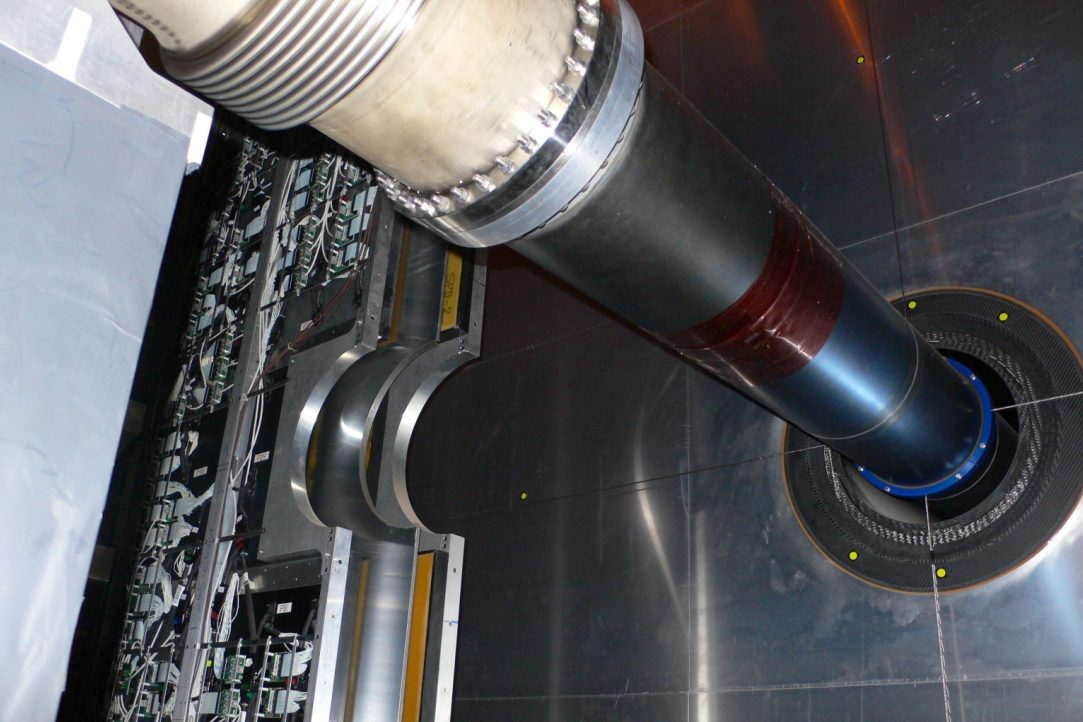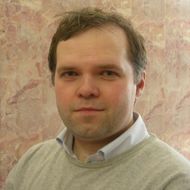Faculty of Computer Science Lab Develops Monitoring System for LHC Experiment

Researchers from the Laboratory of Methods for Big Data Analysis (LAMBDA) at the HSE Faculty of Computer Science have created a monitoring system that is used in the Large Hadron Collider beauty experiment (LHCb). The system helps track the quality of the collected data and allows operators to quickly find errors.
Researchers use the LHC to collide elementary particles and observe the results of these collisions. It is very important to detect what exactly happens during a collision and to precisely track the particles’ trajectories. The results are presented as a large number of 3D photos—several thousand shots a second.
The shots of particles are taken by a detector—a huge camera 30 m in length. The camera consists of different layers, each of which performs a particular task. For example, the first layer allows a particle go through and detects the reaction of the environment; the next layer registers its trajectory; and the last one absorbs the particle. It is important to ensure that the system of data collection works properly and that the researchers get good data to use in their research. But since the number of shots is huge, there is an issue of how to analyse its quality. Any bad pixel on the matrix may have a critical impact on the data, since that could be the location of the desired particle.
Researchers from LAMBDA proposed a system with AI elements that processes all shots and scans them for anomalies, after which it advises the operator of the experiment to pay attention to those launches that it considers problematic or in need of attention.

Denis Derkach, Senior Research Fellow at LAMBDA
‘The Large Hadron Collider has been launched in cycles: the first cycle took place from 2010 to 2012, the second from 2014 to 2018, and the third one will last from 2022 to 2024. Today, CERN is “warming up” the collider and testing it before the big launch, which will take place in the coming weeks. We have prepared a monitoring system for the LHCb experiment: the system makes it possible to track the status of the experiment from anywhere in the world, while machine-learning algorithms decrease the time needed to find issues with the data.’
The Large Hadron Collider beauty experiment (LHCb) is one of the four key detectors of the Large Hadron Collider. Each of the LHC experiments has its own tasks, systems, and solutions. The main focus of LHCb are B mesons, which contain beauty quarks—hence the name of the experiment.
See also:
‘These Are Very Promising Specialists in Product Management and Data Analysis’
HSE University launched the Master’s in Data-Driven Communication in 2019. The programme is aimed at promising managers who want to master modern technologies for working with clients. It trains professionals in product management and marketing who know how to work with data and AI.
Economic Empowerment at HSE University
HSE University alumna Dr. Elena Podkolzina recently became an academic supervisor of the newly established master's programme in Economics and Economic Policy. Having been part of HSE University for nearly 25 years now, Dr. Podkolzina recalls her student years and shares her experience as deputy director of the Center for Institutional Studies.
‘We Facilitate High-Speed Car Crashes and Study How Car Engines Work Based on Photos of Flying Debris’
Nikita Kazeev holds a Candidate of Sciences degree (Russian equivalent of a PhD) in Computer Science and a PhD in Physics. He is a Research Fellow at the LAMBDA Laboratory and works at CERN. In an interview with HSE News Service, he talked about what it was like to defend his dissertation in a double doctoral degree programme at HSE University and Sapienza University of Rome, what it is like to conduct research in Geneva, and why it is imperative to communicate with colleagues.
‘Completing My Studies in Russia Has Always Been My Dream’
Ismail Kayali, from Aleppo, Syria, earned his MS in Big Data Systems from the HSE Faculty of Business and Management in 2018. He is currently pursuing a PhD in Informatics and Computer Engineering at the HSE School of Data Analysis and Artificial Intelligence.
‘My Time at HSE Will Always Be Special for Me’
Sangam Kumar Singh is currently finishing the second year of his Master of Science in Big Data Systems. After spending the first year at HSE Moscow, he has gone to the UK on a double degree track with Lancaster University. Sangam has talked to HSE News Service about his studies, hobbies, research interests, and future plans.
Social Media as a Lens on Collective Emotion
During the XX April International Academic Conference on Economic and Social Development, scheduled this year for April 9-12 at the Higher School of Economics, Dr David Garcia of the Complexity Science Hub Vienna and the Medical University of Vienna, Austria will present a report entitled ‘The digital traces of collective emotion’ at a session on ‘The Wellbeing of Children and Youth in the Digital Age.’ Ahead of the conference, Dr Garcia spoke with the HSE News Service about his conference presentation, his research, and plans for ongoing collaboration with HSE colleagues.
‘Big Data Systems Programme Is the Perfect Amalgam of Business, Analytics, and Informatics’
Sangam Kumar Singh has come from India to do a Master’s in Big Data Systems at the HSE School of Business Informatics in Moscow. He has chosen HSE due to its high standing in global university rankings such as QS and the Times Higher Education ranking as well as its focus on research and innovation. Having started his career in engineering within telecommunication business and later moving onto R&D application and analytics in the same area, he was drawn to HSE’s programme because it combines business, informatics and analytics and equips its graduates with the skills and knowledge required by our modern economy and ever-changing market dynamics.
Graduation Ceremony for the Double-degree Master’s Programme in Big Data Systems
On June 29, the third graduation ceremony for the double-degree Master’s programme in Big Data Systems (HSE, Russia) and Information Systems Management (UAS Technikum Wien, Austria) was hosted at the Austrian Ambassador’s Residence in Moscow. Dr. Hartmut Koller-Lenhardt, Chancellor at the Embassy of Austria in Moscow, gave the opening address. He congratulated the graduates on their successful completion of the programme and stressed the importance of cooperation between the universities in regards to cultural and professional communication and connections.
Leading Researcher at the HSE Faculty of Computer Science Coordinates New Experiment at CERN
Fedor Ratnikov, a leading researcher at the Laboratory of Methods for Big Data Analysis (LAMBDA), has been appointed project coordinator in the SHiP collaboration. He will be responsible for developing and designing the detector’s active magnetic radiation shielding.
Data Culture: HSE Will Teach All Its Students to Work with Data
HSE will launch a new project called Data Culture in September 2017. Starting their very first year, HSE bachelor’s students will learn to work with data, and students in a number of programmes will also become familiarised with methods of machine-learning and artificial intelligence.


